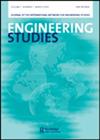创客空间:大学创客空间形成过程中的实践
IF 1.3
3区 工程技术
Q2 EDUCATION, SCIENTIFIC DISCIPLINES
引用次数: 7
摘要
本研究旨在了解高等教育机构中针对工科学生的学术创客空间的起源,从那些在大学创客空间发展中发挥形成作用的人的角度进行描述。研究了八种不同的大学创客空间的起源,探讨了它们在大学创客空间形成过程中的实践(或共享策略)。本研究实施半结构化访谈协议,聚焦于创客空间的管理、访问、设计和独特方面的主题。来自美国8所大学创客空间的9位领导者参与了这项研究。通过多个编码周期对访谈数据进行分析,出现了四个主要主题:需要允许想要(反之亦然),访问允许各种学习机会,方向允许授权,实验允许可持续性。为了补充这四个主要主题,本文介绍了创客空间的概况和每个空间如何开始的摘要,并提供了一个比较图表,报告了机构类型、资金来源、访问和管理模式。通过将创客空间概况与新兴主题并置,本文为学术创客空间的运营实践提供了可转移的见解。本文章由计算机程序翻译,如有差异,请以英文原文为准。
Making a Makerspace: Identified Practices in the Formation of a University Makerspace
This study seeks to understand the origin accounts of academic makerspaces targeted for engineering students at higher education institutions, as described from the perspective of those who played a formative role in the development of the university’s makerspace. The origin accounts of eight varied university makerspaces are investigated for their practices (or shared strategies) in the formation of a university makerspace. This study implements a semi-structured interview protocol focused on the topics of administration, access, design, and aspects unique to the makerspace. Nine leaders from eight U.S. university makerspaces participated in this study. The interview data were analysed through multiple cycles of coding, and four major themes emerged: a need allowed for a want (and vice versa), access allowed for varied learning opportunities, direction allowed for empowerment, and experimentation allowed for sustainability. To supplement the four major themes, this article presents makerspace profiles and summaries of how each space started along with a comparison chart that reports the type of institution, funding sources, access, and management models. Through juxtaposing the makerspace profiles with the emergent themes, this article provides transferrable insights regarding operational practices for academic makerspaces.
求助全文
通过发布文献求助,成功后即可免费获取论文全文。
去求助
来源期刊

Engineering Studies
ENGINEERING, MULTIDISCIPLINARY-HISTORY & PHILOSOPHY OF SCIENCE
CiteScore
3.60
自引率
17.60%
发文量
12
审稿时长
>12 weeks
期刊介绍:
Engineering Studies is an interdisciplinary, international journal devoted to the scholarly study of engineers and engineering. Its mission is threefold:
1. to advance critical analysis in historical, social, cultural, political, philosophical, rhetorical, and organizational studies of engineers and engineering;
2. to help build and serve diverse communities of researchers interested in engineering studies;
3. to link scholarly work in engineering studies with broader discussions and debates about engineering education, research, practice, policy, and representation.
The editors of Engineering Studies are interested in papers that consider the following questions:
• How does this paper enhance critical understanding of engineers or engineering?
• What are the relationships among the technical and nontechnical dimensions of engineering practices, and how do these relationships change over time and from place to place?
 求助内容:
求助内容: 应助结果提醒方式:
应助结果提醒方式:


